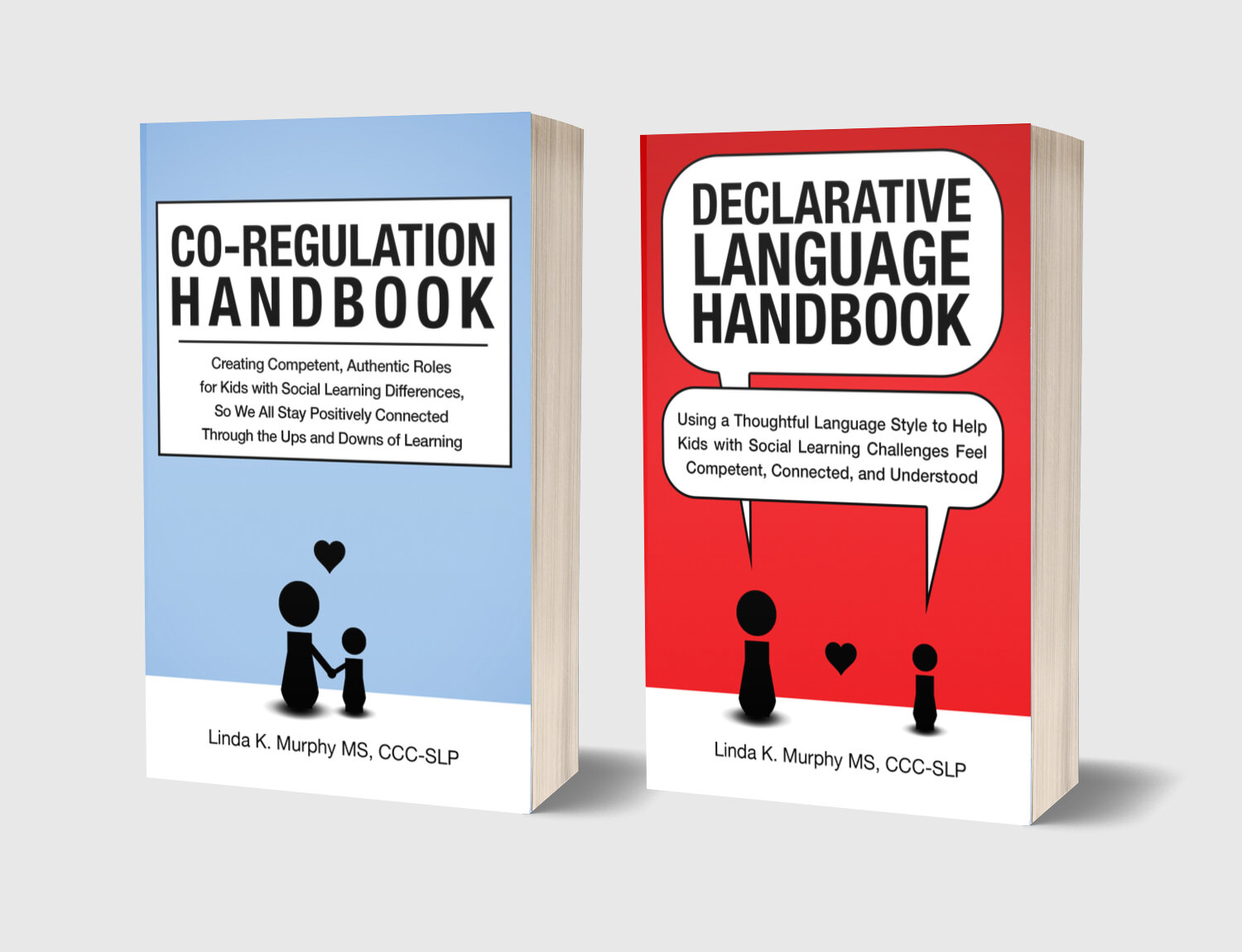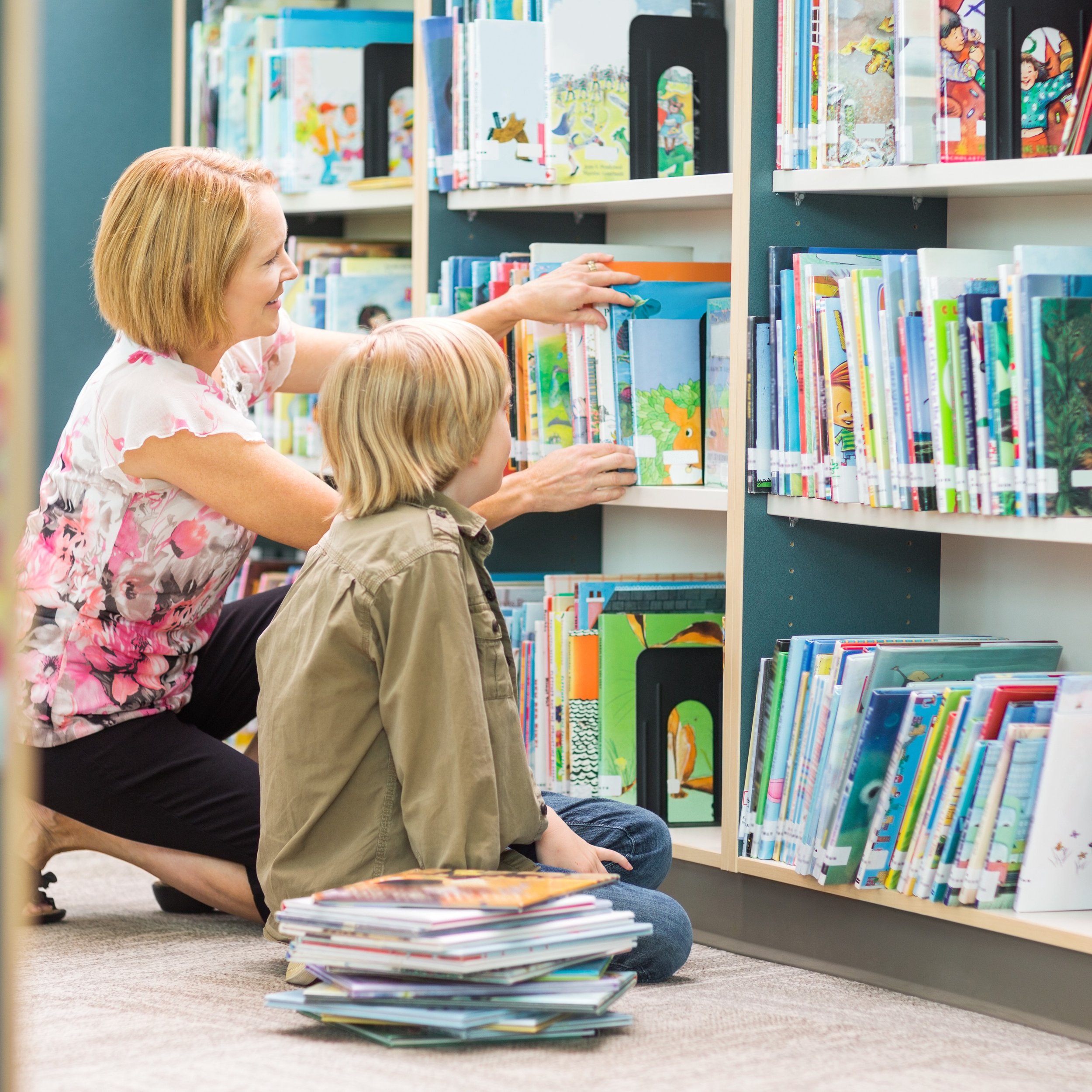Three Minutes
“I pay much more attention to the small moments and opportunities to co-create interactions and memories. I really feel like I can enjoy my child in a different way.” – Mary, Declarative Language Workshop participant
As you get started with co-regulation, you will likely discover how much the small moments matter. There is so much goodness and learning that can happen when you engage your child in routines that take five minutes or less, using co-regulation as your foundation. I discuss and give many examples on this idea in Co-Regulation Handbook but wanted to share a recent example from our DL Workshop.
For one homework assignment, Mary engaged her child in co-regulation while putting books away on a bookshelf. Typically, this is something she would quickly do on her own, to simply get it done. But this time, she set up the routine giving them both competent, contingent, and authentic roles. She was the book hander, and her 6-year-old son was the placer. Together they put the books away one at a time (she handed him a book, and he placed it on the shelf).
The video clip that she shared was only three minutes long, yet we were all moved watching their positive connection, their shared enjoyment of the task, and her child’s pride in his role. In addition, we observed two noteworthy learning moments.
First, he placed one book on the shelf, spine first. Mary noticed, paused and took a moment to explain to him best practice with bookshelves! Using declarative language and modeling, she showed him that – when you put the books in with the spine facing out – it becomes much easier to find the book you are looking for. He watched and listened, and at the next opportunity, we all observed him pause after she handed him the book, take note of its positioning, and adjust it accordingly so that it went on the shelf, spine out. It was such a small thing, but so fun to watch because his learning was so real in that moment! Their co-regulation had created the space for Mary to transfer this tiny bit of bookshelf wisdom, and he now owned it as his own.
Here is the second.
As learners engage in a new role within co-regulation, they come to master it. When mastery happens within a safe, positive learning environment, learners then seek out greater challenge on their own. After Mary’s son had mastered the initial pattern (placing one book on the shelf, spine facing out, after she handed it to him), we observed this process in action! Instead of taking only one book from her hands, he began taking two or three books at a time, while continuing to place each carefully and thoughtfully on the shelf. In other words, he invited and embraced a greater fine motor, cognitive and organizational challenge for himself. He guided his own learning beyond his current level of competence and skill.
These moments may seem like little deals on the surface, but really, this is how learning happens. We don’t wake up one day and know everything we need to know. Neither will our kids and students. We all learn little by little, moment by moment, through our personal experiences. The more a trusted adult engages learners in the small moments, the more they learn real world skills. Co-regulation gives us the framework to make this happen.
And remember, the amazing learning we observed with Mary’s son took three minutes - that’s it! So, the next time you have a small, quick job to do that you typically do on your own, consider using co-regulation and doing it with your child instead. The result just may be increased competence, pride, and a joyful connection that you both will remember.
Have a great week!
If you like my Sunday Snippets of Support, you can receive them directly to your inbox here.


